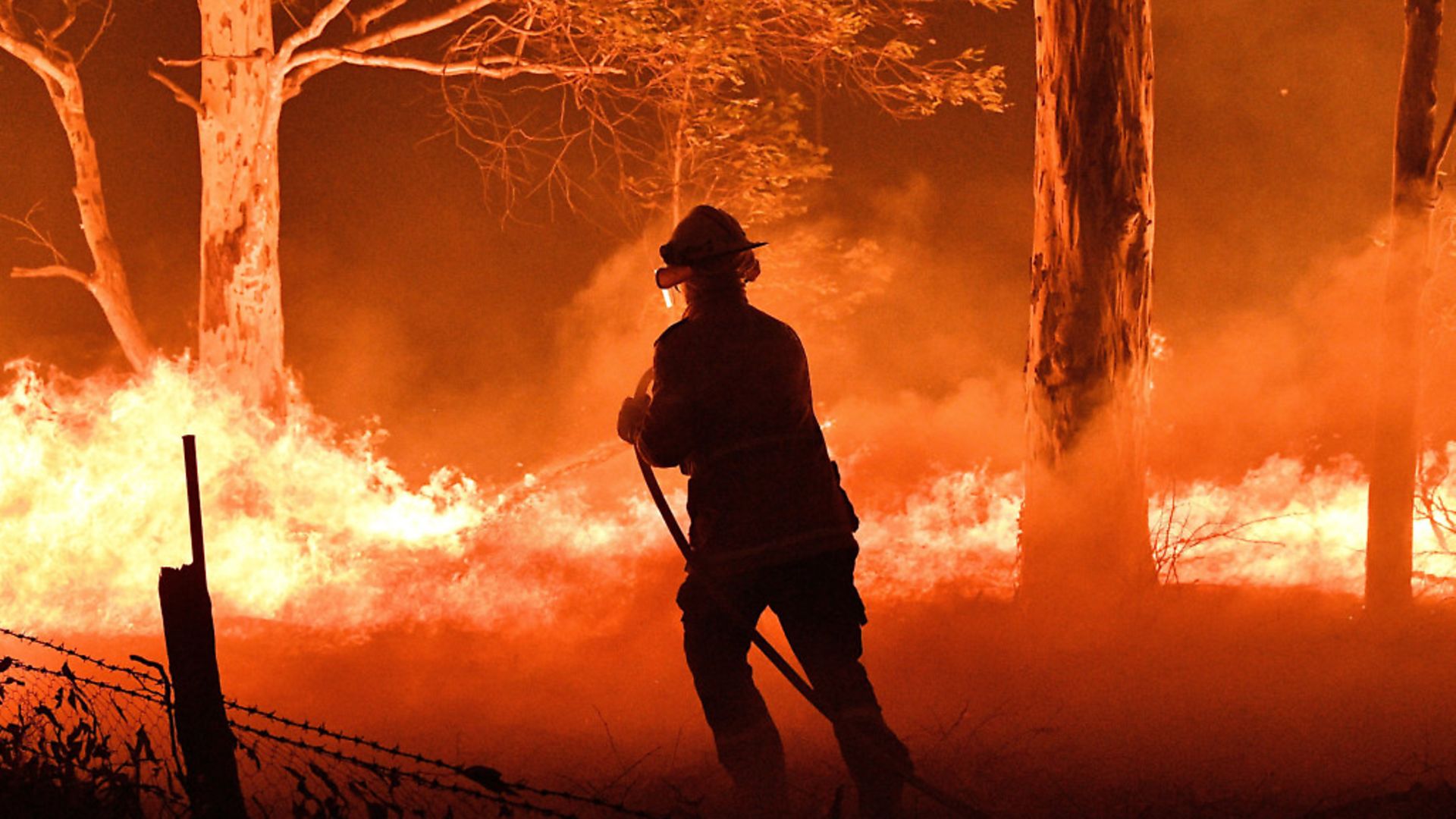
Green Party MEP Catherine Rowett on some fundamental questions raised by the bushfires.
Recently, the group of Green MEPs were considering what topics to propose as ‘urgent resolutions’ for the Strasbourg plenary session of the European parliament.
These call on the EU to take action in response to urgent human rights abuses and crisis situations in non-EU countries, by putting pressure on their governments.
Could we, I wondered, include the bushfire situation in Australia as an urgency and seek to exert influence on its government? Australia is, after all, a non-EU country, albeit not one that is regularly associated with such crises.
And the European parliament has acknowledged the urgency of the threat posed by man-made climate change. Is it not logical, then, for the EU to apply pressure on other countries for ecological abuses in the same way that it does to help ensure the rule of law and international human rights obligations, sometimes with the use of sanctions?
Of course, the bushfire crisis is not posing an immediate threat to the safety of most Australians (although the country’s firefighters and others have courageously put themselves in the line of considerable danger), and the country’s citizens do not lack a democratic say when it comes to giving their own verdict on their government’s action… or, more pertinently, lack of action. These are important considerations when deciding whether to propose an urgency resolution.
But should we – could we – pass such a resolution in defence of the rights of the millions – maybe a billion according to some reports – of animals who have become victims of this disaster, or, indeed, on behalf of nature itself?
It would be interesting to push this as a political experiment, and we in the Green group were sorely tempted to do so.
But in the end, the sheer number of other pressing human rights cases we wanted to support, and the expectation that we could get Australia onto the agenda for another debate – without taking space from those other crises – persuaded us to drop that experiment.
Still, it is worth reflecting on whether there are some hidden human rights issues here, as well as animal rights and threats to natural habitats. Most obviously, there is the direct threat posed to animals and plants and, indeed, entire species, by the bushfires. Arguably this is an ongoing case of ‘ecocide’, and one that could have been prevented by a government willing to take more action.
Second, there is the related issue of the ongoing threat that Australia’s fossil fuel burning and coal mining activities are creating in other habitats around the world. This includes places where humans cling to a precarious existence in low-lying flood-prone regions.
The bushfires may be the most visible consequence of the Australian government’s irresponsible energy and industrial policies – in place throughout the 40 years or more that scientists have understood the dangers of climate change – but the consequences are felt elsewhere; and besides, the fires themselves are releasing carbon formerly sequestered over many years in the vegetation, vastly increasing the carbon footprint of a country already heavily in carbon debt for its mining legacy.
And thirdly, the global destruction of habitats and biodiversity will leave future generations with a situation that they did not ask for and may not be able to undo. Is this not an issue of human rights? If our generation had done to them out of malice what we are doing to them out of negligence we would be considered a threat to their human rights.
So maybe, in the end, we were wrong to abandon that urgent resolution and argue that Australia, an advanced democracy, is responsible for human rights abuses conducted under our very eyes. Sadly, though, the country is far from unique in this regard.









